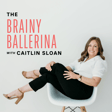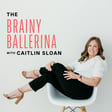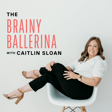
19. From Las Vegas to Artistic Director with Karen Mareck Grundy
Karen Mareck Grundy is the Artistic/Executive Director of Mareck Center for Dance. She performed extensively, including 11 years in Las Vegas, and her innovative style blends classical ballet and modern dance with influences from Las Vegas productions.
In this episode, Karen pulls the curtain back, sharing stories from her days dancing in Las Vegas to her current role as Artistic Director. As Mareck Dance enters its 19th season, we learn what has led to the longevity of the company up until now as well as what Karen’s vision is for the future. This interview had me on the edge of my seat - truly a must-listen!
Key Moments:
- Early dance training [1:55]
- Karen’s professional dance career in Las Vegas [3:58]
- Moving to Missouri to teach dance [9:17]
- The beginning of Missouri Contemporary Ballet (now Mareck Dance) [14:56]
- What has led to the longevity of Mareck Dance [19:23]
- What Karen looks for in dancers when holding auditions [23:08]
- What she is most proud of as an Artistic Director [27:33]
- Karen’s long-term vision for Mareck Dance [29:24]
- Her biggest piece of advice for dancers pursuing a career [31:13]
Connect with Karen and Mareck Center for Dance:
MARECK DANCE WEBSITE: mareckcenterfordance.org
INSTAGRAM: instagram.com/mareck_dance
FACEBOOK: facebook.com/mareckdance
Links and Resources:
Get your copy of The Ultimate Audition Guide
1-1 Career Mentoring: book your complimentary career call
Let’s connect!
My WEBSITE: thebrainyballerina.com
INSTAGRAM: instagram.com/thebrainyballerina
Questions/comments? Email me at caitlin@thebrainyballerina.com


